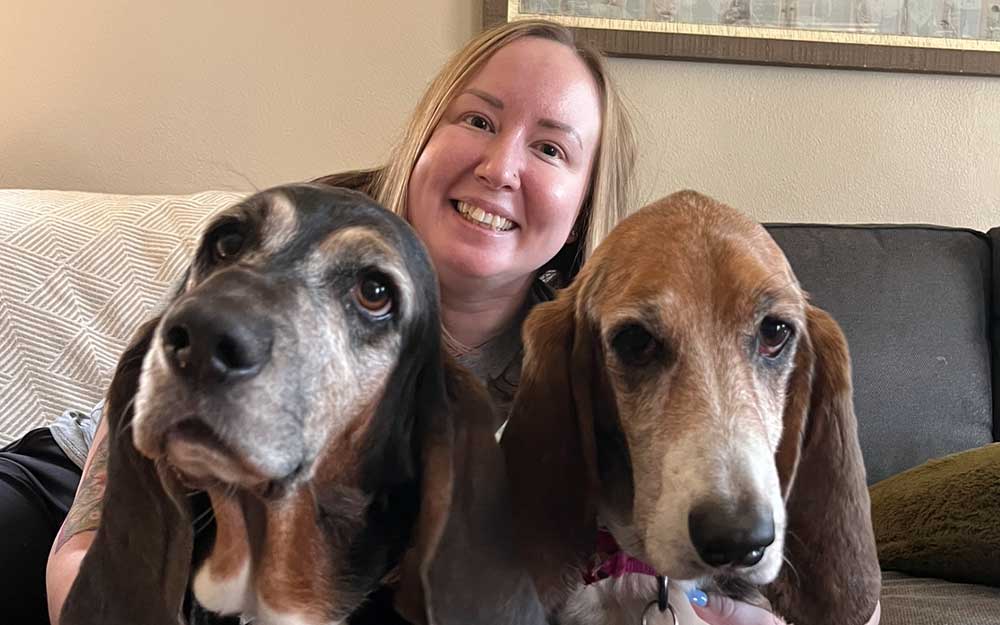“I want people to know that recovery is possible,” says Jane. “I was able to get my life back. I really was at a complete loss for how I was going to be able to continue. My future was completely up in the air, and now I feel like I’m in control of my life again. I now truly recognize that my mental health journey will be a lifelong commitment.”
Jane says her eating disorder started in 2008 when she was 23 years old.
“I had just been promoted at work and moved to a new area where I really didn’t know a lot of people,” Jane says. “I started dating someone and the relationship quickly became emotionally abusive. Not knowing how to cope with so many changes brought on depression and anxiety, and I developed terrible coping skills which turned into my eating disorder. I was truly in denial of how bad things were.”
Jane got help two years later through psychiatric outpatient therapy at a local hospital. She says things got better until 2017.
“I had taken on a lot of work at my job and became depressed,” Jane says. “My eating disorder was a symptom of my depression and anxiety, and it became a negative way for me to cope.”
Jane returned to her local hospital and started taking medication to manage her symptoms which helped for a while.
In 2019, she quit her job to become self-employed and found the transition of working in an office to being home alone made her depression and her eating disorder worse.
“I decided to get myself back into therapy,” Jane says. “My therapist referred me to an eating disorders specialist at her clinic, who then suggested I needed a higher level of care and recommended Rogers. I wasn’t resistant to treatment. I was sick and tired of being sick and tired. We called together from her office and started the intake process.”
Three weeks later, Jane was admitted into Eating Disorder Recovery adult inpatient care where she stayed for 17 days. She says she knew she didn’t want to live with an eating disorder any longer and made it clear her goal was to be admitted to Eating Disorder Recovery adult residential care. Jane was in residential treatment for two months and learned a lot about what may have contributed to her mental health challenges.
“I grew up with a parent who suffered with depression and that led me to develop unhealthy coping skills,” says Jane. “I learned more about what happened in my life that got me to where I am today.”
Jane says she learned how to set healthy boundaries with family, friends and at work. She doesn’t put herself in situations where she’s inviting stressors into her life.
“Having a support system of therapists, behavior specialists, and other residents helped,” Jane says. “We all had this common thread that brought us to this same place.”
Jane wants to encourage anyone struggling with an eating disorder to reach out for help.
“I want people to know that recovery is possible,” says Jane. “I was able to get my life back. I really was at a complete loss for how I was going to be able to continue. My future was completely up in the air, and now I feel like I’m in control of my life again. I now truly recognize that my mental health journey will be a lifelong commitment.”
How Rogers can help
Rogers provides highly specialized and compassionate care for children, adolescents, and adults. To request a free, confidential screening:
- Call 800-767-4411 for inpatient, residential, and outpatient care in Brown Deer, Oconomowoc, and West Allis.
- Call 888-927-2203 for all other locations.
- Request a screening online.
If you do not feel you need treatment right away, but may be concerned, we offer online quizzes to possibly provide some relief. While these quizzes do not provide a diagnosis, it could be the first step in finding the treatment you may need. Take our online Anxiety or Eating Disorder quizzes today.


